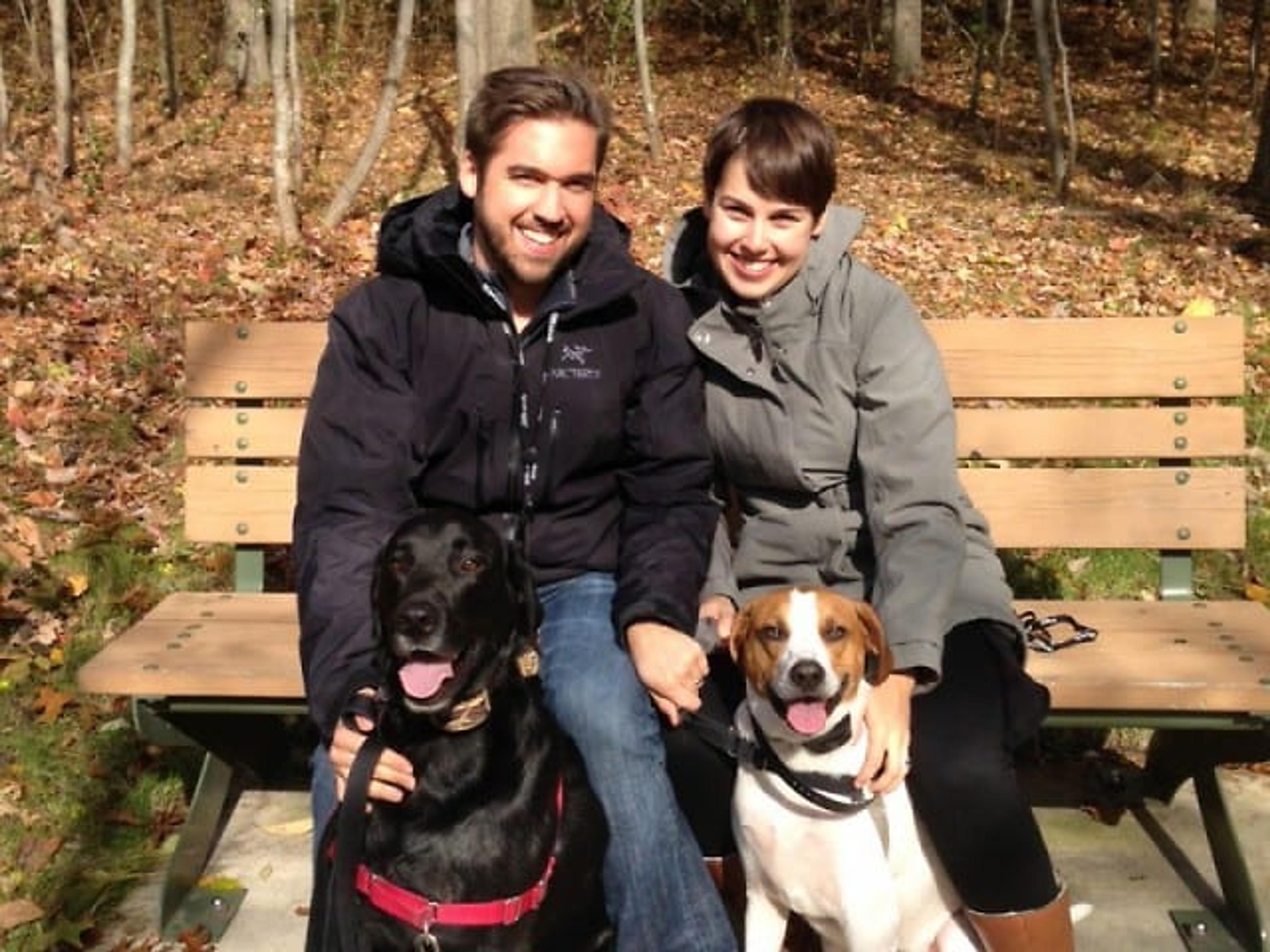Lack of infertility support in the #1 city to raise a family

Kristin Coppens
| 4 min read

Grand Rapids continues to shine on the national stage as the city makes list after list of “Top” rankings. Just last year, Forbes Magazine ranked Grand Rapids as the #1 city to raise a family (due to numerous community and economic factors), a truly wonderful recognition for the area. What about those in Grand Rapids who do not have kids, more specifically, those who suffer from fertility issues?
Surely, Grand Rapids would be a city with abundant resources for infertility and family planning issues in support of their focus on family and strengthening community. That is precisely what Maria Novotny and her husband Kevin Jordan thought when they wanted to start a family after moving to Grand Rapids from Milwaukee.
“As newlyweds, [when we visited Grand Rapids to find residence] we were sold by seeing the kids riding their bikes, parents walking strollers, and couples grilling out in their backyards,” said Novotny.
Both coming from large families, Maria and Kevin were always clear on wanting to start a family after they were married in 2010. “For us, family was always something central to our lives and something that we both knew we wanted. As such, when we got married we decided to try to start our family right away,” explains Novotny.
Especially for young couples (Maria and Kevin were married at 24), becoming pregnant is supposed to be simple and full of ease. Naturally, they assumed that getting pregnant would happen right away. They began monitoring cycles, strategically planning, and eventually undergoing fertility tests with their respective doctors over the course of the next year.
Kevin Jordan and Maria Novotny
Technically speaking, both Maria and Kevin should have been able to conceive. There was nothing medically ‘off’ with their test results. Nevertheless, there is still 6% of the population that is considered to have “unexplained infertility.” Presented with the option of IVF, Maria and Kevin decided that due to their young age (25 at this point) they could afford to step back, reevaluate, and take some time away from the process.
After this realization, Maria and Kevin decided they wanted to find the resources and opportunities for support groups and helping other couples dealing with infertility. Though they received information on the various ways to have a family, the space to openly discuss their options and talk through their processing with others in similar situations was severely lacking.
Novotny notes, “We felt that many were trying to resolve our infertility by directing us towards options to have a family rather than paying attention to the fact that we needed to first mourn and heal from the diagnosis of being infertile.” She explains that the “just fix it” option is not relatable, nor is it really working for the couples that deal with family planning setbacks.
Novotny believes West Michigan does a good job at ‘fixing’ the problem of infertility, but not necessarily supporting. In a city that is ranked #1 for raising a family, “Kevin and I think that Grand Rapids values families and so the choice not to have a family or to not be able to have family can be viewed with skepticism. We have had people ask us why we do not just adopt or do IVF and the answer simply is that we are not sure that we are meant to have kids. The idea of family is conceived of still in very traditional terms. And so, this can be a difficult mindset to get across in a place, like Grand Rapids, that is traditionally conservative.”
The only two support groups Maria and Kevin found in West Michigan strangely did not apply to their situation. One was specifically for couples that are undergoing IVF treatment, and the other was geared towards women only, not the whole couple. Both options prevented the inclusion Maria and Kevin were searching for. They then decided to go about starting a support group, specifically a branch of the national group, RESOLVE, which only has Michigan locations on the east side, and are now in the process of doing so.
If you, or someone you know, are dealing with infertility issues, Maria and Kevin are laying the groundwork for a support group here in West Michigan. Through the help of Greater Hopes Family Services, the support group is slated to meet on the second Thursday of every month. The first meeting will be on January 6th, 2014 at 7pm, located at 1345 Monroe Ave. NW in Grand Rapids.
What other forms of support have helped you or your loved ones with the infertility journey?
Photo credit: The Rapidian





